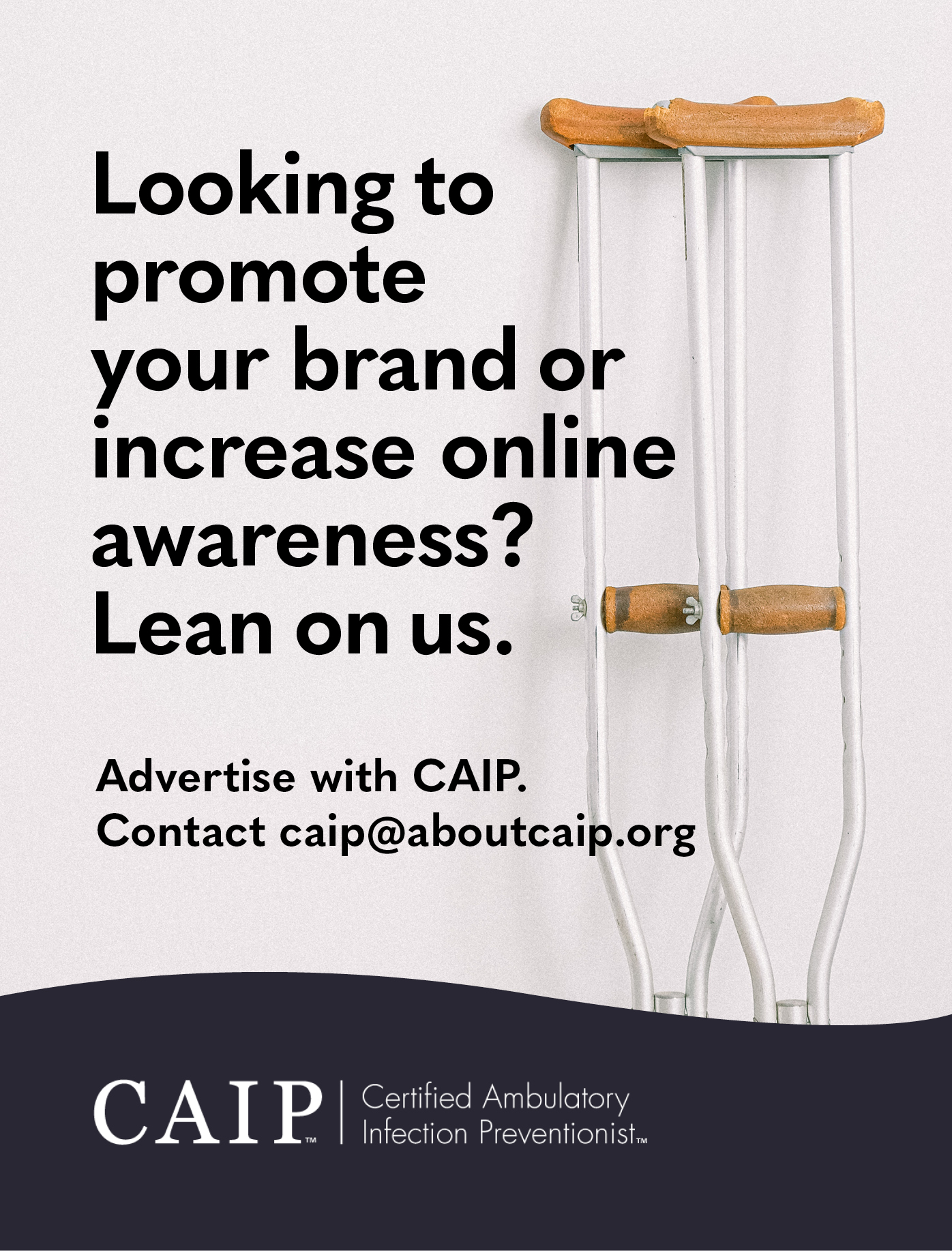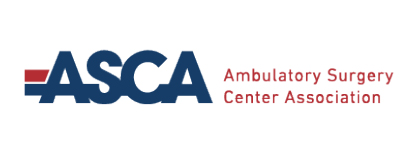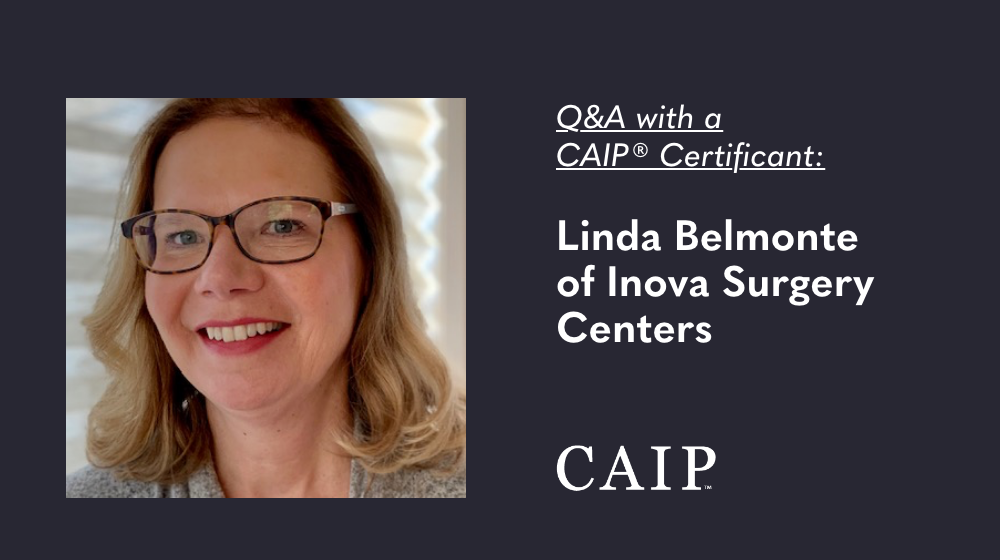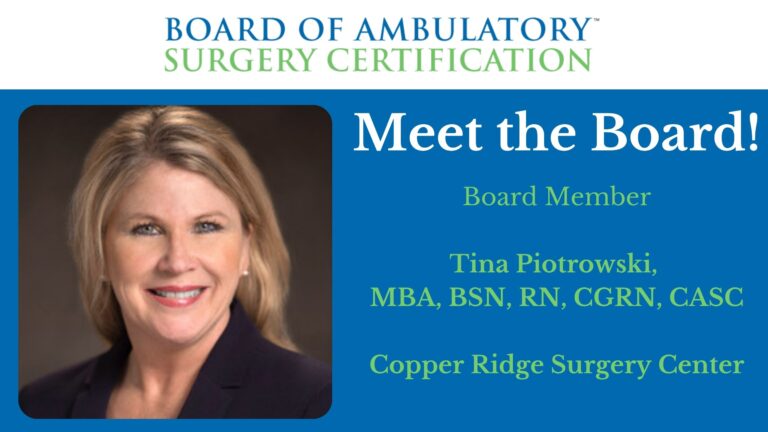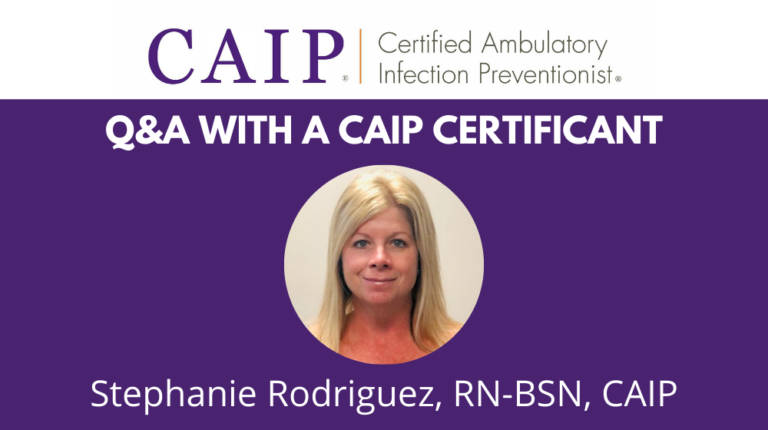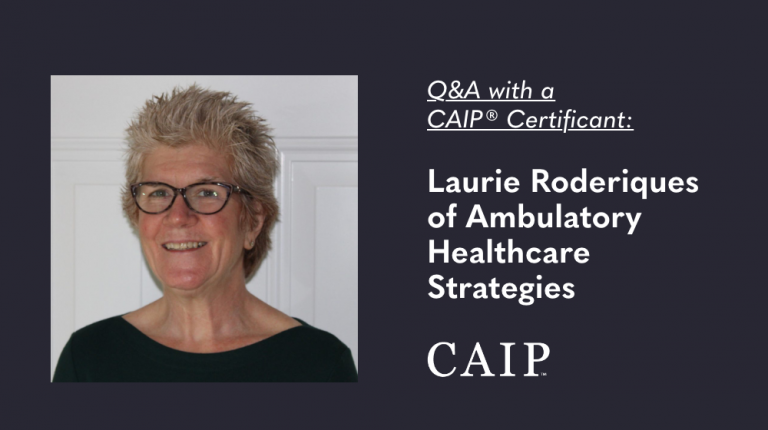Linda Belmonte, BSN, MSA, CAIP, is an infection preventionist/quality consultant for Inova Surgery Centers in Falls Church, Virginia. In this position, she supports four ASCs. Prior to this role, Belmonte worked at Inova Loudoun Hospital in Leesburg, Virginia, for 15 years as an infection preventionist. She has held multiple nursing positions during her career, including serving as medical/surgical bedside nurse, nurse educator and childbirth educator.
Q: When you first heard about the CAIP credential, what were your initial thoughts?
Linda Belmonte: I was very excited that there was an opportunity to take a certification exam for the outpatient arena that provides proof of competency in the field of infection prevention. This is such an important credential in light of how much emphasis is on infection control and safety for the patient and staff population alike. Infection prevention is a unique career path and is gaining respect as a very important function in healthcare, especially in light of the spread of infectious disease, multidrug resistant organisms and more complex instrumentation, equipment and procedures.
Q: Why did you pursue the CAIP credential?
LB: Earning the CAIP credential was a professional goal of mine. I wanted the administrators, managers, physicians and staff I work with to have confidence that I have the knowledge to execute all aspects of the infection prevention programs at the four ASCs I support. It is important for me to gain the trust of the individuals I work with so that when an untoward event takes place or a need arises that may result in a great deal of expense, my consultative recommendations will be seriously considered.
Q: What do you think is the value of CAIP?
LB: Intrinsically, the value is proof to myself that I could pass the first-generation exam based on my years of experience in infection control. In addition, the continuing education required to maintain this credential supports the need to be abreast of the latest information related to infection prevention.
Extrinsically, this credential is proof that a professional ASC infection preventionist has the knowledge to consult in every situation and prove to accrediting bodies that the ASC meets regulatory standards at all times. The credential also provides career growth and marketability in the healthcare workplace
Q: How do you think earning and maintaining the credential will benefit you and your ASC?
LB: The CAIP credential demonstrates dedication to proficiency by the individual accepting the importance of the infection prevention role. For the ASC, it shows a commitment to training and a strong proponent of excellence. This will be evident in every patient experience. Infection control will be a priority to the staff that work at the ASC. The accreditation association will be navigated through a smoother survey as a knowledgeable infection preventionist will understand the standards and execute the elements of compliance.
Q: What advice would you give to those individuals who are considering pursuing CAIP?
LB: I would highly recommend anyone involved or responsible for infection prevention in the outpatient setting to be committed to earning certification. I would suggest studying for the exam by becoming familiar with the educational resources recommended by BASC. The reward of earning the credential is worth the amount of time to prepare for the exam.

